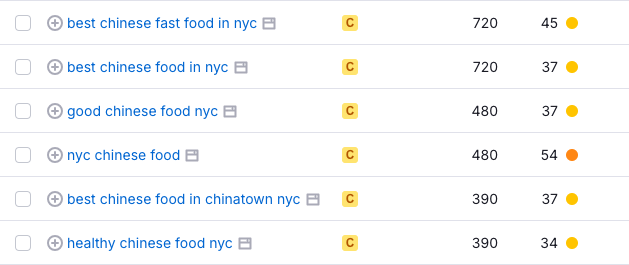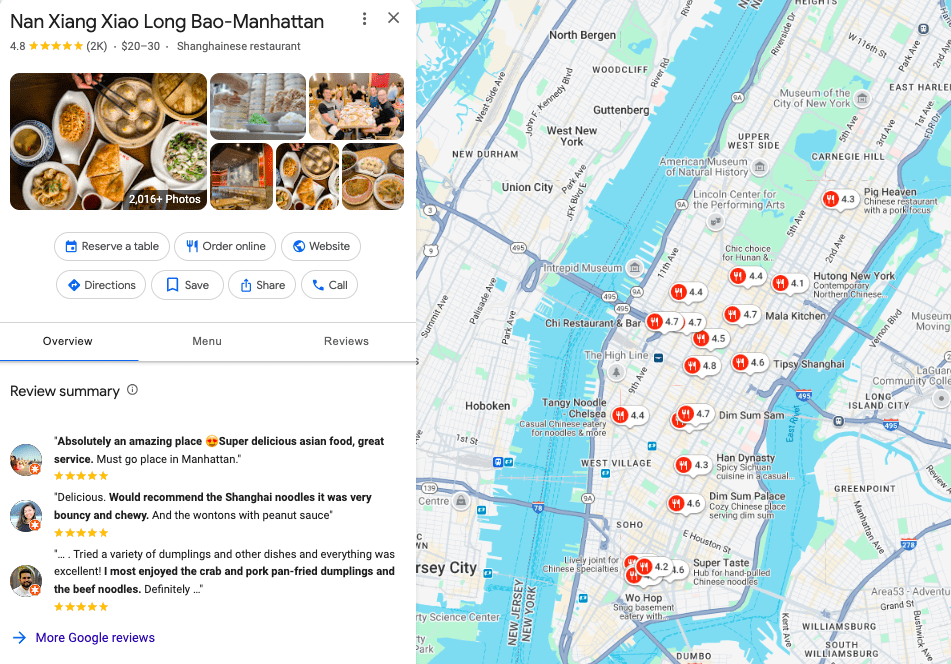When people search for products, services, or places, they often add the phrase “near me” to their queries. This trend, driven by the growing use of mobile devices, has become an essential part of search behavior. Ranking for “near me” searches on Google is crucial for businesses that rely on local customers, and it requires a well-rounded SEO strategy. This article will explore the tactics necessary to capture more location-based queries and optimize your presence for “near me” searches.
How to Rank for the Words “Near Me”: Understanding Their Importance in Searches
Before diving into strategies, it’s important to understand why “near me” searches are essential. When users type “near me,” they’re signaling immediate intent. These are customers looking for fast, local results—whether it’s for a nearby restaurant, plumber, or dental office. Ranking for these searches can increase your local visibility, boost foot traffic, and drive online conversions.

What are “Near Me” Searches?
“Near me” searches refer to online queries where users are looking for specific products, services, or businesses in their immediate vicinity. These searches typically indicate an immediate purchase intent, with users expecting to find relevant businesses nearby to meet their needs promptly.
The rise of voice-enabled devices and mobile searches has significantly contributed to the growth of “near me” searches. As consumers increasingly rely on their smartphones to find local businesses, optimizing for these queries has become crucial for staying competitive. Local businesses that effectively target “near me” searches can capture the attention of potential customers who are ready to make a purchase, thereby driving more foot traffic and increasing sales.
Growth of “Near Me” Searches
According to Google, searches containing the term “near me” have surged in the last few years, especially on mobile. As consumers become more accustomed to instant results based on their location, this search behavior has intensified. Not optimizing for these searches can result in lost opportunities for local businesses.
Benefits of Optimizing for “Near Me” Searches
Optimizing for “near me” searches offers numerous benefits for local businesses. By appearing in local search results, businesses can increase their online visibility, drive more foot traffic to their physical stores, and ultimately boost sales. According to Google, 46% of all searches seek local results, and 88% of mobile searches for local businesses lead to visits or calls within 24 hours.
This highlights the immediate intent behind “near me” searches and the potential for quick conversions. By neglecting “near me” optimization, businesses risk missing out on valuable consumers and potential conversions. Therefore, focusing on local search optimization can significantly enhance a business’s ability to attract and retain local customers.
Top Categories for “Near Me” Queries
The top categories for “near me” queries vary, but some of the most popular include:
- Food and restaurants
- Entertainment
- Banking
- Apparel
- Healthcare
The hierarchy of “near me” search categories shows the intent of the searcher, with food businesses being the most popular.
By understanding the top categories for “near me” queries, businesses can tailor their optimization strategies to target their specific audience and increase their chances of appearing in local search results. This targeted approach ensures that businesses are meeting the specific needs of their local customers, thereby enhancing their local search rankings and driving more relevant traffic to their locations.
Optimize for Local SEO and Improve Local Search Rankings
Optimizing for local SEO is the foundation of ranking for “near me” searches. Local SEO focuses on improving your visibility in location-specific search results. The primary difference between local SEO and traditional SEO is that local SEO prioritizes the geographical proximity of search results to the user’s location.

Key Elements of Local SEO
- NAP Consistency: Ensure your business name, address, phone number (NAP), and other business details are consistent across all platforms and listings. Google relies on this information to verify your business’s credibility.
- Location-Specific Landing Pages: If your business has multiple locations, create dedicated landing pages for each one. Include geo-specific keywords in the URL, title tags, meta descriptions, and throughout the content.
- Local Backlinks: Gaining backlinks from local businesses and organizations is another way to boost your local relevance. These links signal to Google that your business is associated with the local community.
- Schema Markup: Adding local business schema to your website helps search engines understand essential details about your business, such as operating hours, location, and services offered. Including the business address in the schema markup can further enhance visibility in local search results.
Leverage Geo-Specific Keywords
One of the most effective ways to rank for “near me” searches is to incorporate geo-specific keywords into your website content. These are keywords that include the city, neighborhood, or area where your business operates.

Tips for Using Geo-Specific Keywords
- Add Location in Key Areas: Include the location in title tags, meta descriptions, headers, and throughout your content.
- Long-Tail Keywords: Focus on long-tail keywords that include location and intent, such as “best Italian restaurant in Brooklyn” or “emergency dentist near Central Park.”
- Localized Service Pages: If applicable, create pages that target specific services in different locations. For example, if you run a cleaning company, have separate pages for “house cleaning in Phoenix” and “office cleaning in Scottsdale.”
- User-Generated Content: Encourage customers to mention your location in reviews or social media posts. Google uses this information to understand where your business is most relevant.
Optimize Google My Business (GMB) and Google Business Profile
Google Business Profile is a crucial tool for ranking in “near me” searches. GMB listings are typically shown in the local pack—one of the most prominent areas of search results when users make a “near me” query. Therefore, optimizing your GMB profile is critical.

Steps to Fully Optimize Your GMB
- Accurate Information: Ensure your business name, address, phone number, website, and hours are correct. Also, select the most relevant business categories. Accurate information is crucial for appearing in local business results pages.
- High-Quality Images: Upload photos that showcase your business, products, or services. Businesses with images receive 42% more requests for directions and 35% more clicks to their websites.
- Reviews and Ratings: Encourage happy customers to leave positive reviews on your GMB profile. Respond to reviews to show that you value customer feedback.
- Service Area: Define your business’s service area to help you rank for “near me” searches in specific neighborhoods or cities.
- GMB Posts: Use GMB posts to share updates, promotions, or events. This can increase engagement and visibility in local searches.
Optimize for Mobile Search Compatibility
Since the majority of “near me” searches are conducted on mobile devices, your website needs to be fully optimized for mobile. Google’s mobile-first indexing means that your site’s mobile version will be considered first when determining ranking.
Tips for Mobile Optimization
- Responsive Design: Ensure your website has a responsive design that adjusts to various screen sizes, providing users with an excellent experience whether they’re on a phone, tablet, or desktop.
- Fast Load Times: Mobile users expect pages to load quickly. Use tools like Google PageSpeed Insights to identify and fix performance issues.
- Click-to-Call: Add click-to-call buttons on your website. This makes it easy for mobile users to call your business without having to type in your number manually.
- Mobile-Friendly Forms: Make sure any contact or quote request forms are easy to fill out on mobile devices. Avoid forms that are too long or difficult to navigate on small screens.
- Local Directions: Embed Google Maps on your site and provide clear directions. Mobile users searching for “near me” are often ready to visit your location, so make it easy for them to find you.
Optimize for Voice Search
Voice search has become a significant factor in “near me” searches. With the rise of virtual assistants like Google Assistant, Siri, and Alexa, more users are speaking their search queries rather than typing them.

How to Optimize for Voice Search
- Use Conversational Keywords: People tend to use more conversational language when performing voice searches. For instance, they might say “Where can I find a coffee shop near me?” instead of typing “coffee shop near me.” Incorporate natural, question-based keywords into your content to capture voice searches.
- Focus on Local Queries: Many voice searches are location-based, making local SEO even more important. Include phrases that answer common questions like “Where is the best pizza near me?” or “Find a plumber near me.”
- FAQ Pages: Creating an FAQ page that addresses common queries related to your business can help you rank for voice searches. Be sure to use conversational language and provide concise, direct answers.
Build Local Citations and Directory Listings
Consistency across online directories and local business directories is essential for ranking in “near me” searches. Google uses directory listings and citations to verify your business’s location, services, and reputation.
Steps to Build Local Citations
- Submit to Relevant Directories: Ensure your business is listed in popular directories like Yelp, Bing Places, and industry-specific platforms.
- NAP Consistency: As mentioned earlier, make sure your business’s name, address, and phone number (NAP) are the same across all directories.
- Claim Listings: Claim your listings in directories where your business already appears but may not be fully optimized. This ensures you have control over the information displayed.
- Monitor for Duplicates: Duplicate listings can harm your local SEO efforts. Use tools to monitor and clean up duplicate citations that might confuse Google.
Encourage Customer Reviews
Online reviews play a pivotal role in local SEO. When customers leave positive reviews, Google sees it as a sign of trust and credibility, which can improve your rankings for “near me” searches. Reviews also give you the opportunity to mention local-specific keywords.
Best Practices for Collecting Reviews
- Request Reviews Regularly: Make it a habit to ask customers for reviews after a purchase or service. The more recent the review, the more it helps your SEO.
- Respond to Reviews: Whether positive or negative, responding to reviews shows you care about customer feedback. This not only improves your online reputation but also signals engagement to Google.
- Showcase Reviews on Your Website: Displaying reviews on your site increases social proof and can help drive conversions. Use schema markup to help search engines understand the reviews and improve the chances of showing rich snippets in search results.
Focus on Hyper-Local Content
Creating hyper-local content allows you to attract searchers in very specific areas or neighborhoods. Instead of broadly targeting a city or region, hyper-local content aims to capture smaller segments of your community.
Creating content for each business location is crucial to attract local customers effectively. This approach helps optimize visibility in local searches, particularly ‘near me’ searches, by including the location in titles and headers.
Ideas for Hyper-Local Content
- Neighborhood Guides: Write about popular attractions, restaurants, or hidden gems in specific neighborhoods around your business.
- Local Events: Create blog posts or web pages about upcoming events in your area, especially if your business can serve event attendees.
- Case Studies: If applicable, write case studies highlighting how your business has helped local customers or businesses solve problems.
Improve Click-Through Rates (CTR)
A high CTR signals to Google that your listing is relevant to searchers. Improving your CTR can help you rank higher in local search results. Acquiring local links by collaborating with local influencers or businesses, conducting local interviews and surveys, and maintaining a blog can significantly enhance your online visibility and click-through rates.
Tips to Boost CTR
- Write Compelling Meta Descriptions: Your meta description is your chance to convince users to click on your result. Include your location and a clear call to action.
- Localize Titles: Include your city or neighborhood in your page titles. This can help searchers identify that your business is near them and boost clicks.
- Use Rich Snippets: Adding structured data markup (such as review stars or event dates) can enhance your listing and make it stand out in search results.
In the age of convenience, consumers want fast access to businesses close to them, and “near me” searches have become a critical driver of local traffic. While ranking for these searches can seem complex, focusing on mobile compatibility, local SEO, customer reviews, and geo-specific content will put you on the right path to success.
The key is consistency, relevancy, and providing the best possible experience to users looking for local businesses. By mastering these techniques, you’ll not only rank for “near me” queries but also foster stronger connections with your local community and customers.
Next Steps
If you’re looking to improve your local SEO and rank for “near me” searches, it’s time to get started. Evaluate your current SEO efforts, optimize your Google My Business profile, and incorporate geo-specific keywords to increase your visibility.
Don’t forget the importance of mobile optimization and engaging with your local audience through reviews and hyper-local content. The results will speak for themselves as your business climbs the ranks in local search, attracting more customers and driving growth. Contact Markitors to help with local search rankings.







